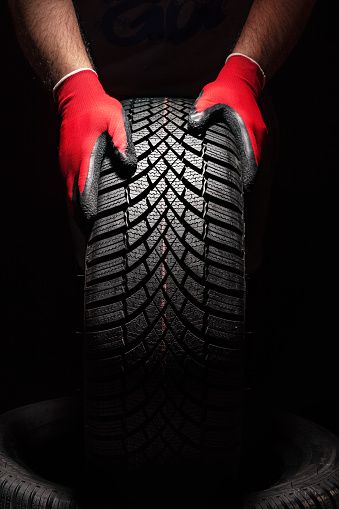Tires are one of the most expensive maintenance items on your car, and replacing them too often can burn a hole in your wallet. The good news? With proper care, you can extend their lifespan, improve performance, and save money in the long run. Here’s how!
1. Rotate Your Tires Regularly
Think of tire rotation like giving your shoes even wear. Over time, front and rear tires wear differently—front tires tend to wear out faster due to steering forces. Rotating them every 5,000 to 7,500 miles (or as recommended by your vehicle’s manual) helps even out wear and prolongs their lifespan.
2. Keep Your Tires Properly Inflated
Underinflated tires increase rolling resistance, leading to faster wear and lower fuel efficiency. Overinflated tires, on the other hand, can cause uneven wear and make your ride harsher. Check your tire pressure at least once a month and keep it at the manufacturer’s recommended PSI, usually found in your owner’s manual or on a sticker inside the driver’s door.
3. Get Regular Wheel Alignments
If your car pulls to one side or your steering wheel feels off-center, your alignment might be out of whack. Misaligned wheels cause uneven wear, reducing tire lifespan. A professional alignment every 6 months or 10,000 miles (or when you notice issues) ensures your tires wear evenly and your car handles properly.
4. Balance Your Tires
Unbalanced tires cause vibrations that lead to premature wear. If you feel shaking at certain speeds, it’s time to check your wheel balance. Most mechanics recommend balancing tires whenever they’re rotated or at least once a year.
5. Drive Smoothly
Fast starts, hard braking, and aggressive cornering put unnecessary stress on your tires. Driving smoothly and avoiding potholes, curbs, and rough roads can significantly extend their lifespan.
6. Check Your Tread Depth
Your tires’ tread depth affects grip, braking, and overall safety. Use the penny test: Insert a penny into the tread with Lincoln’s head down. If you can see the top of his head, it’s time for new tires!
7. Store Tires Properly (If Not in Use)
If you swap between summer and winter tires, store them in a cool, dry place away from direct sunlight and chemicals. Keeping them properly inflated and covered can prevent cracking and degradation.
Final Thoughts
A little maintenance goes a long way when it comes to your tires. By following these simple steps, you’ll get more miles out of your tires, improve safety, and save money in the long run. So, take care of your tires, and they’ll take care of you!
